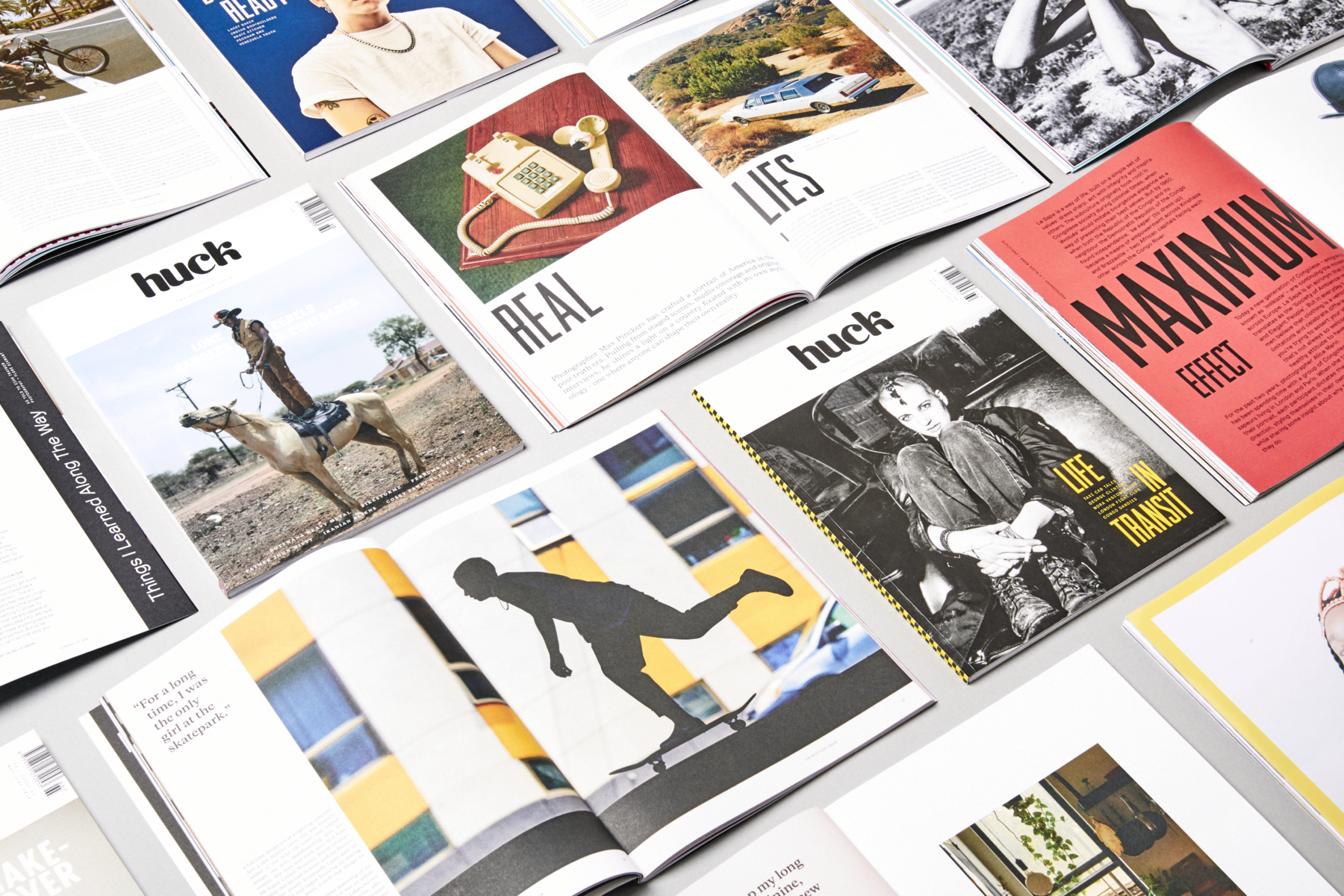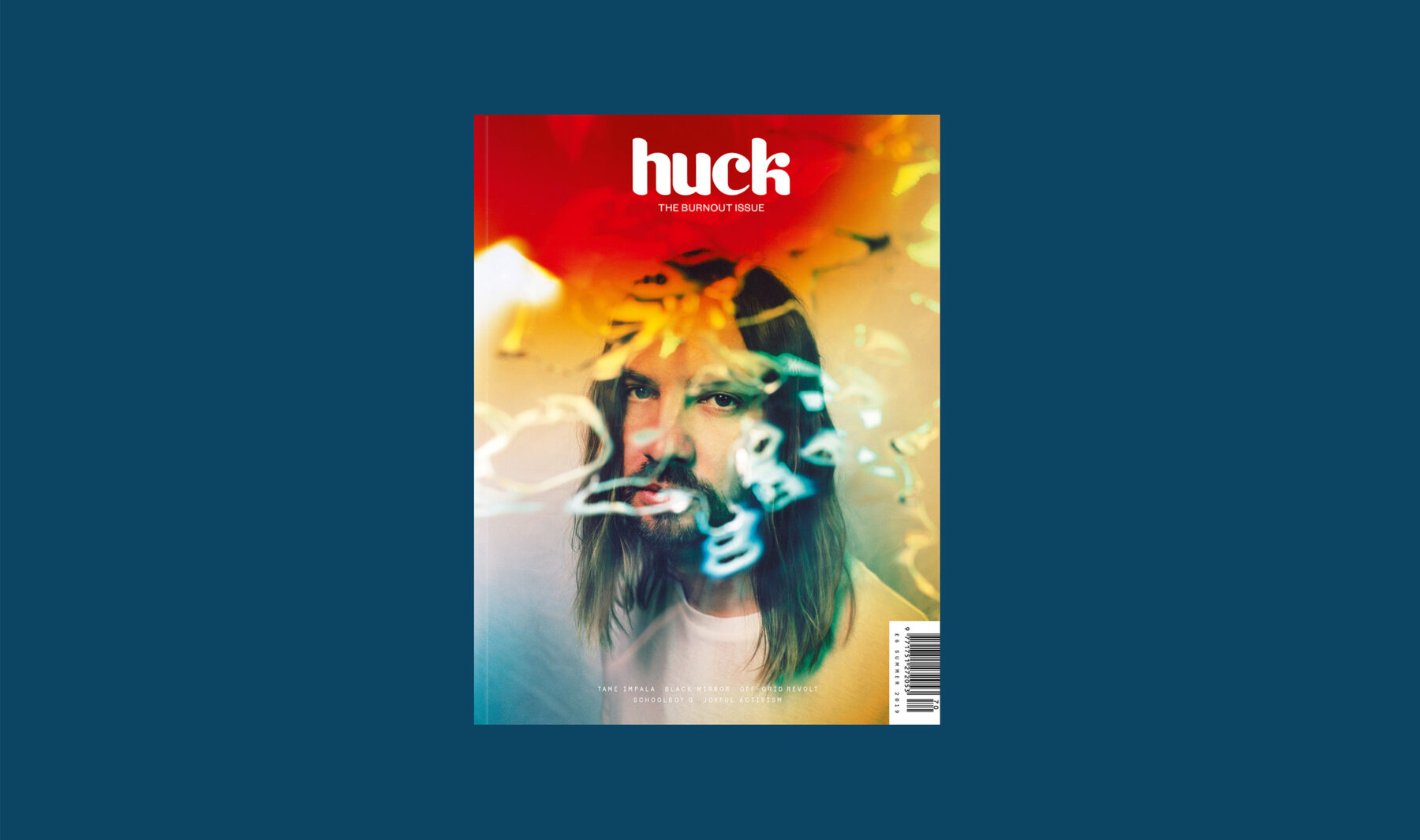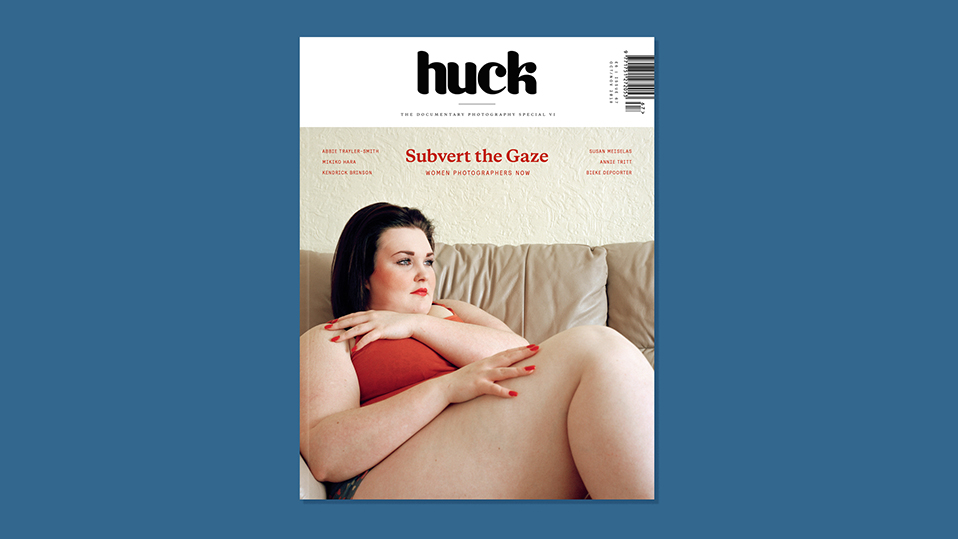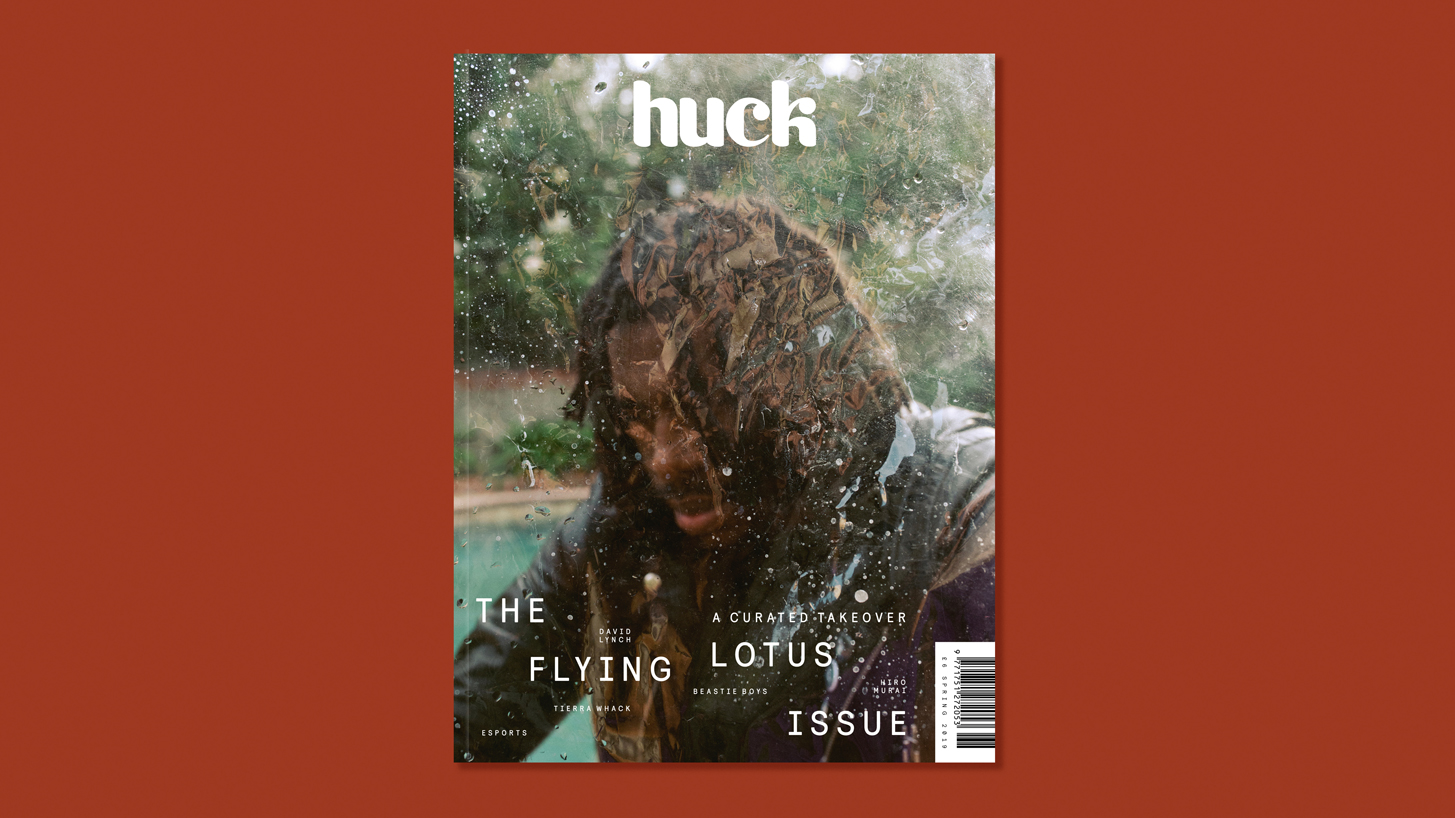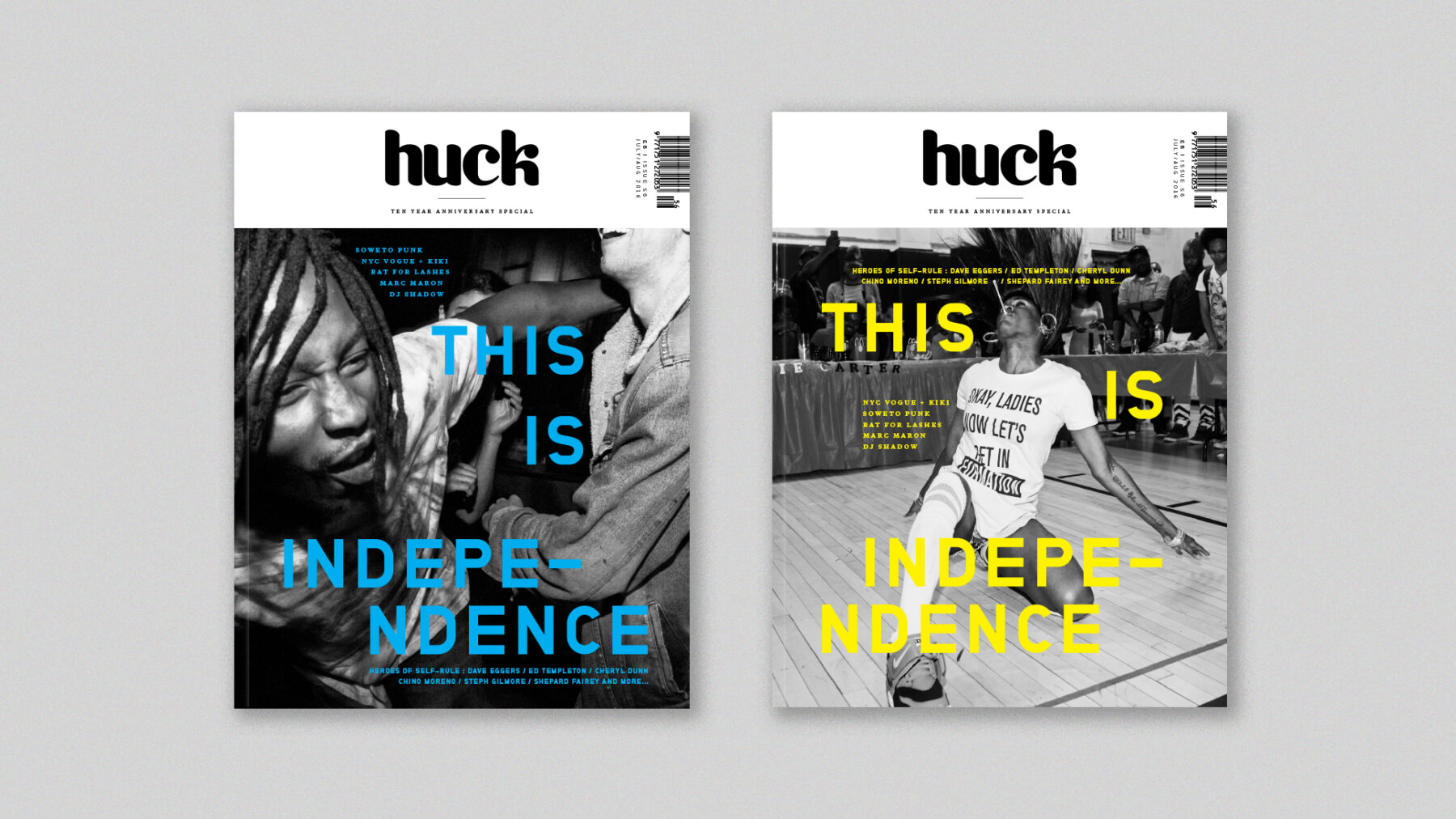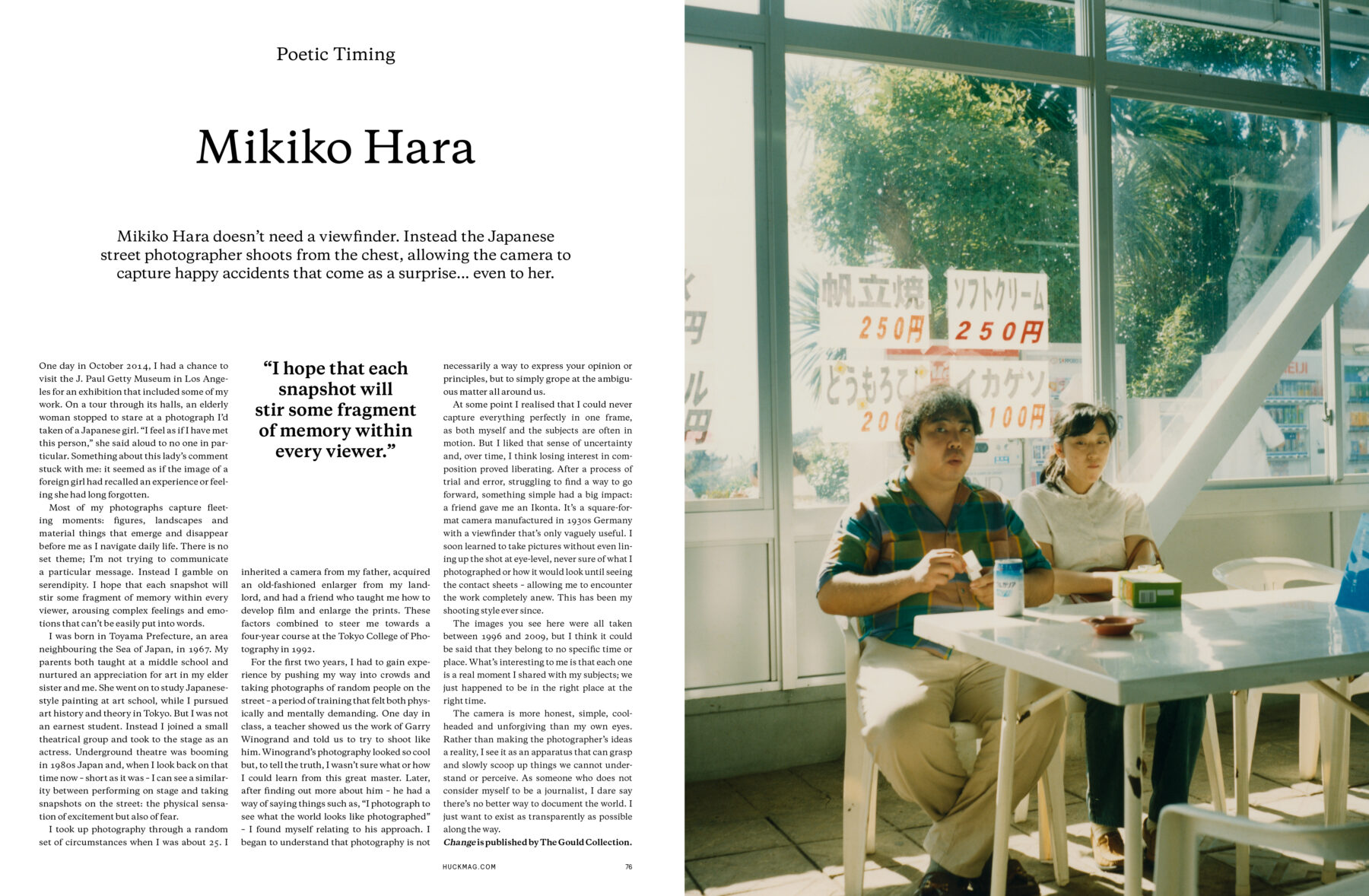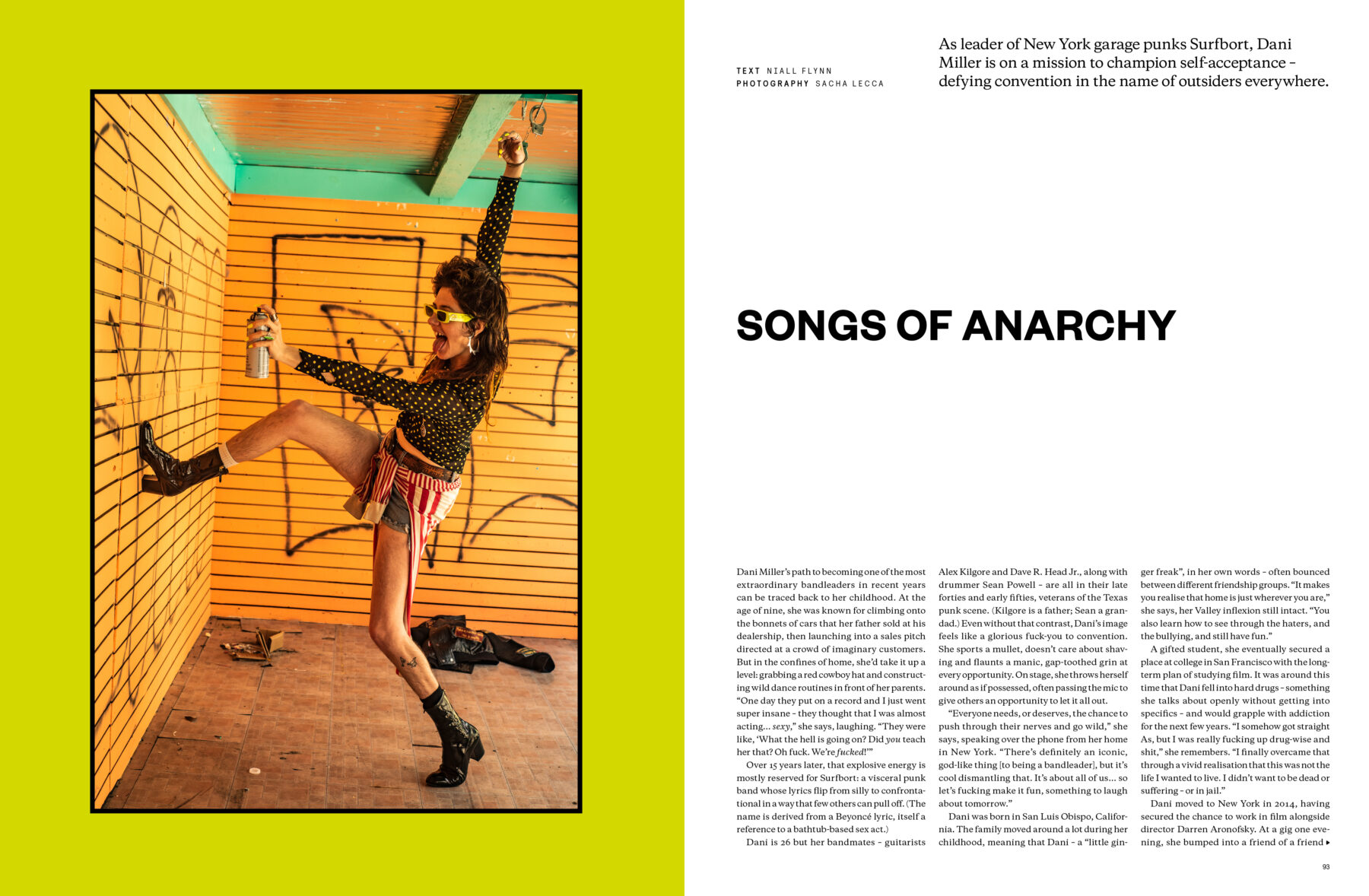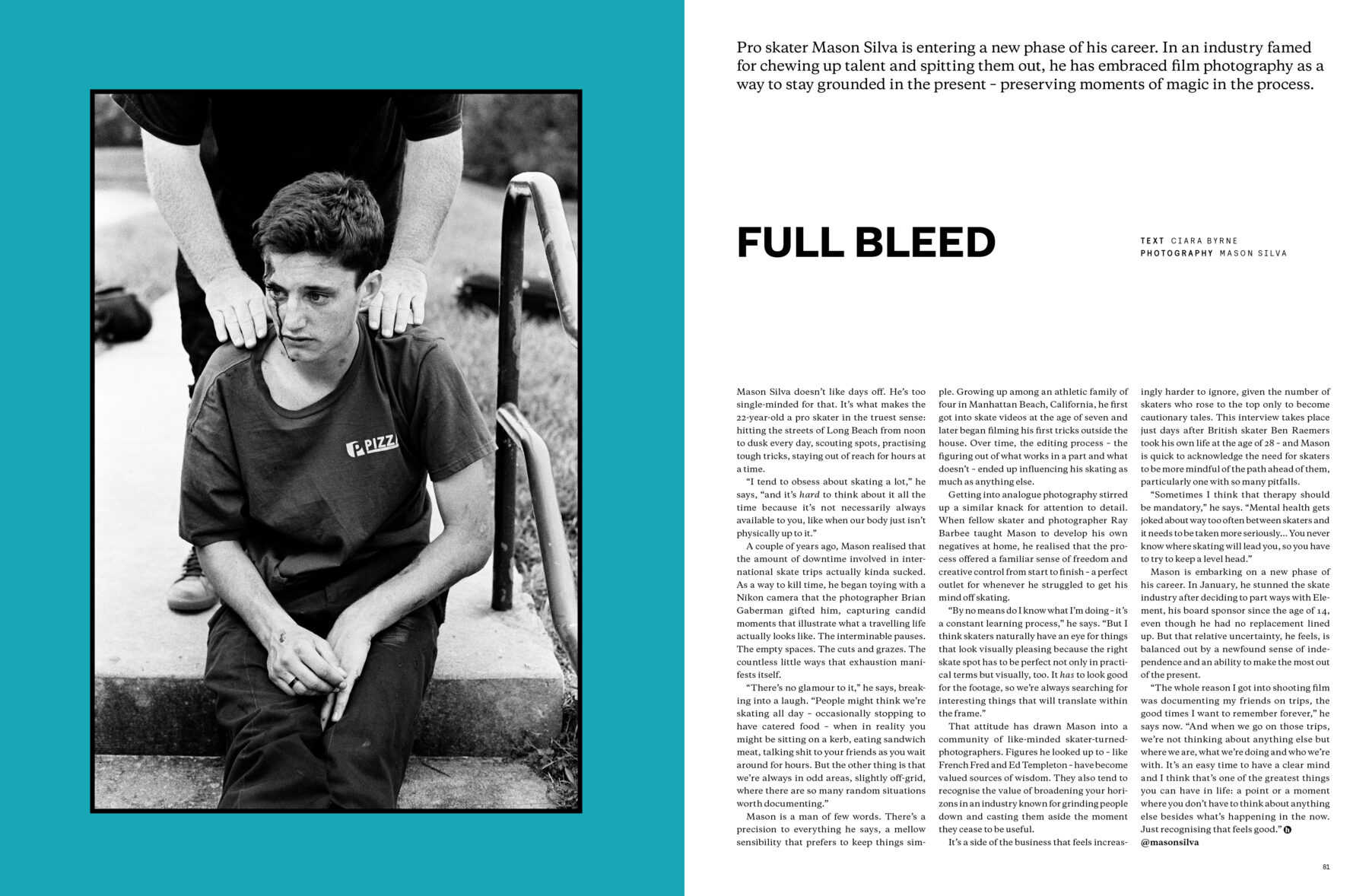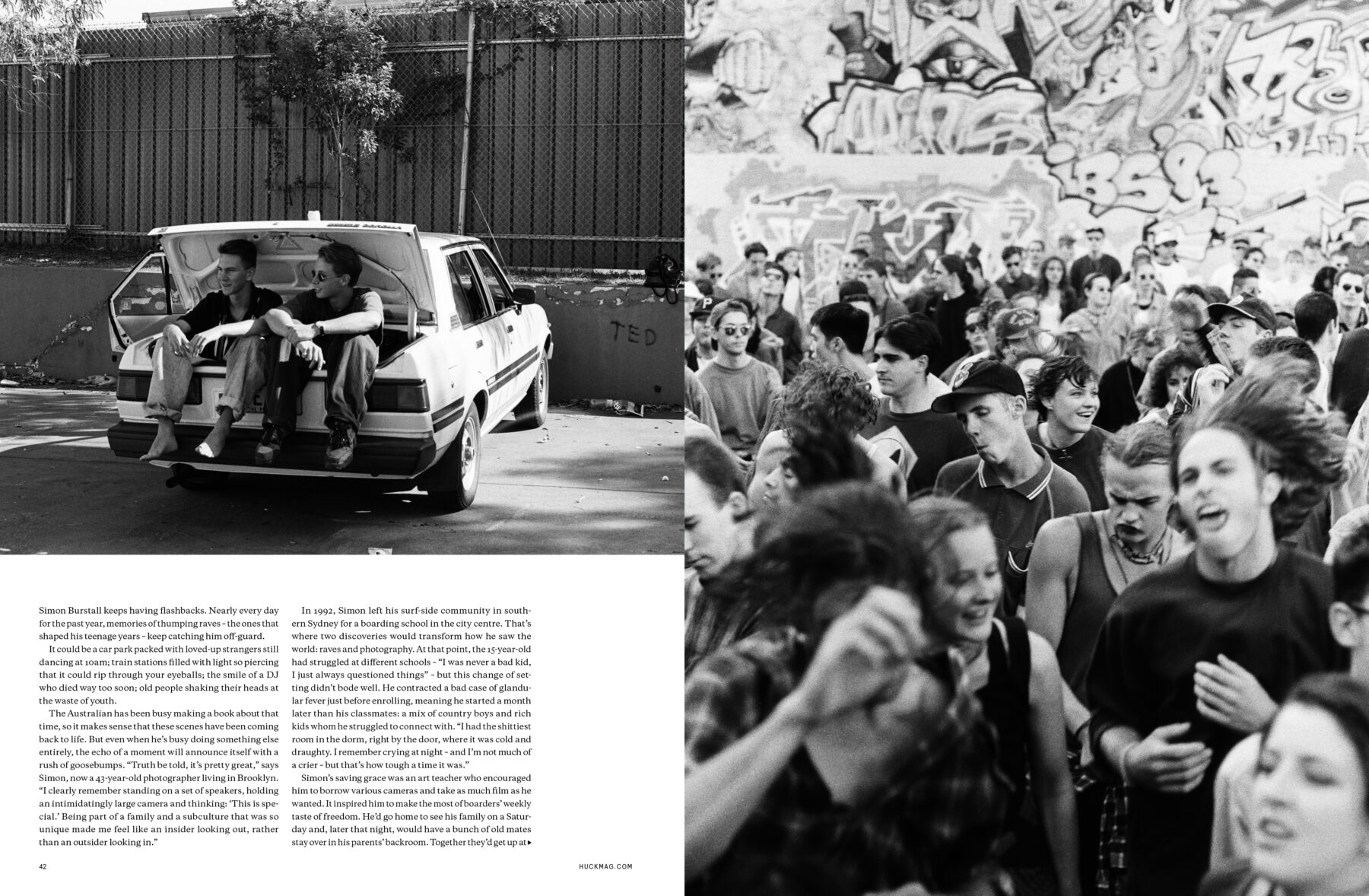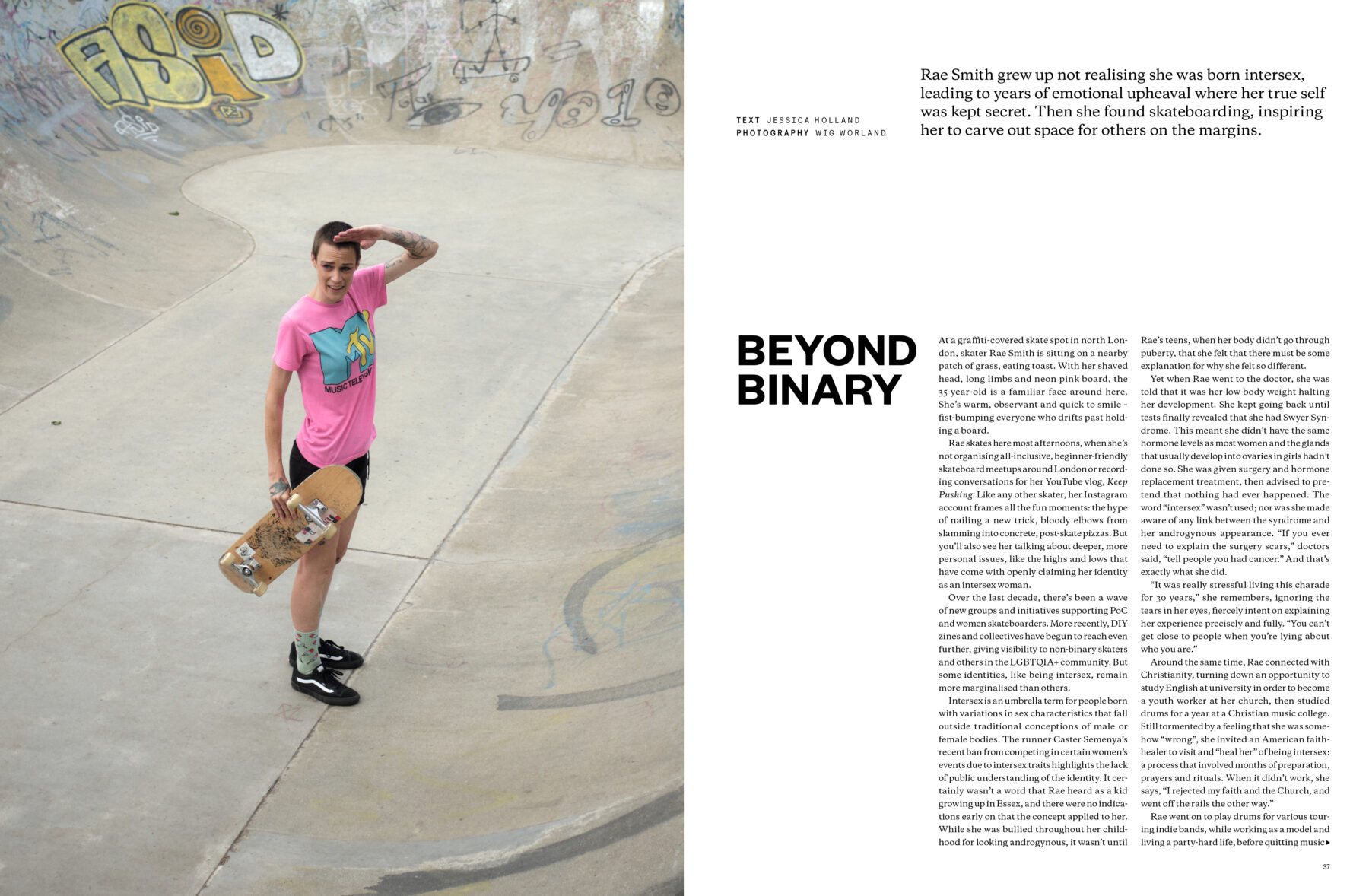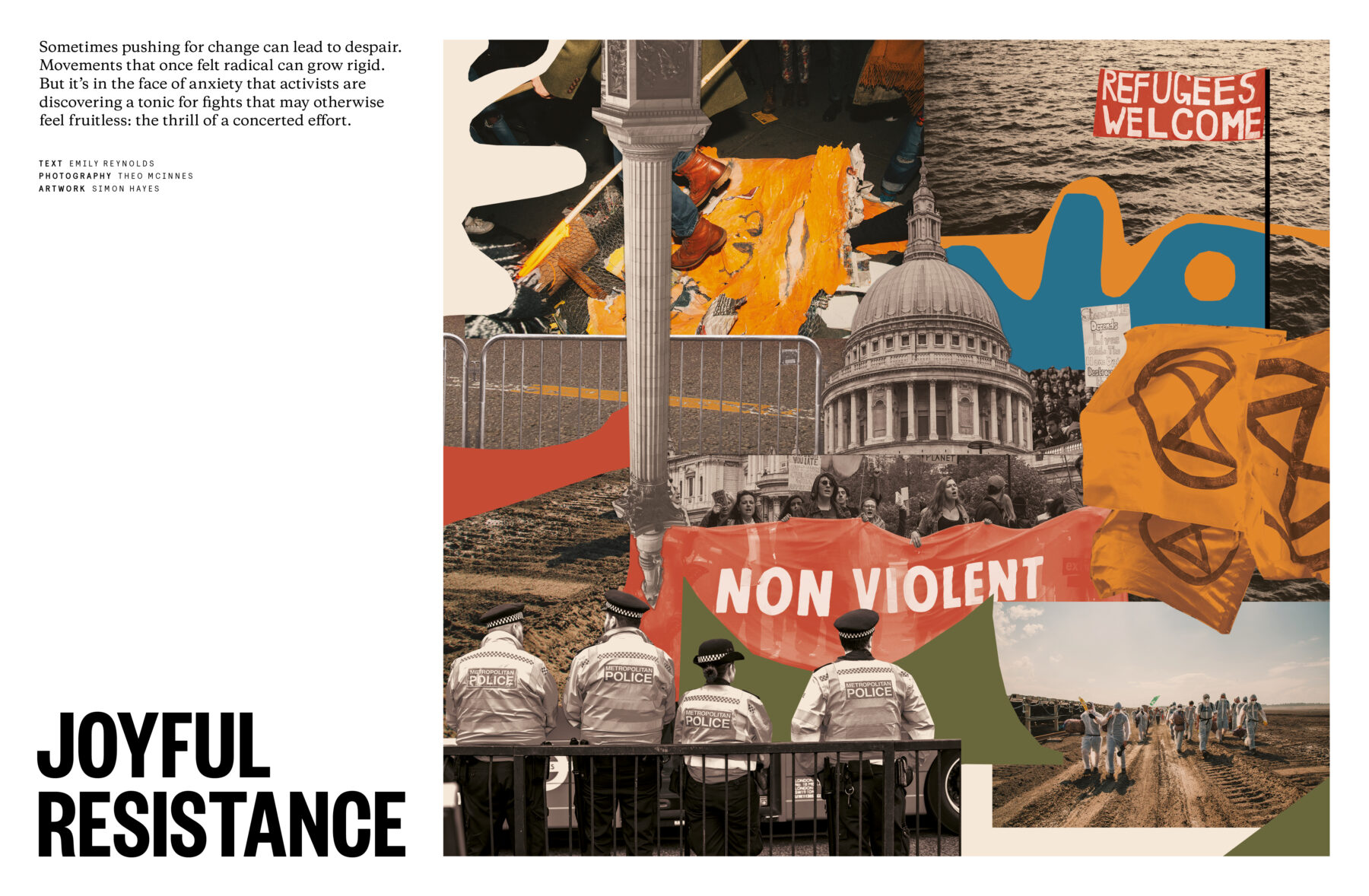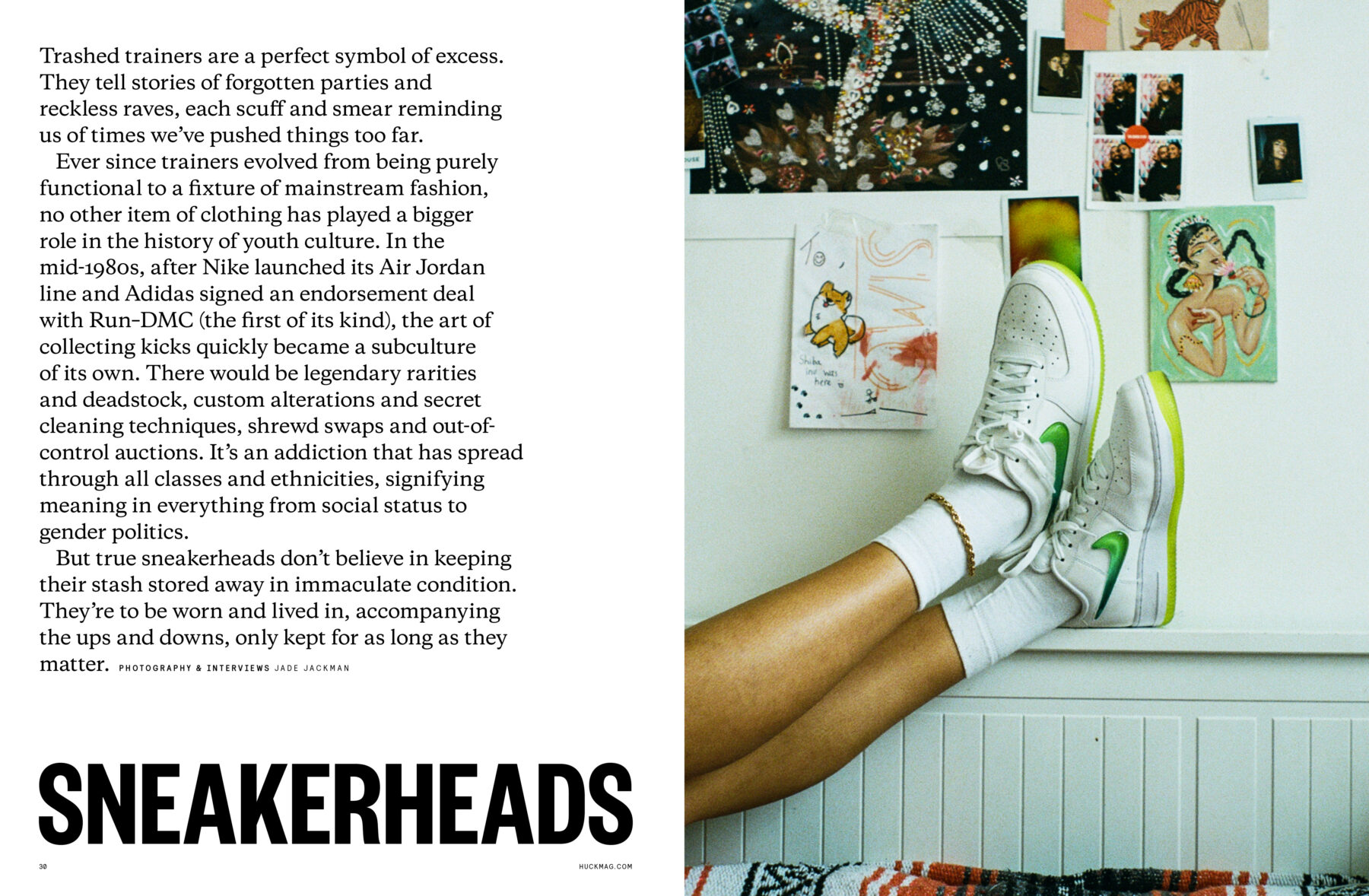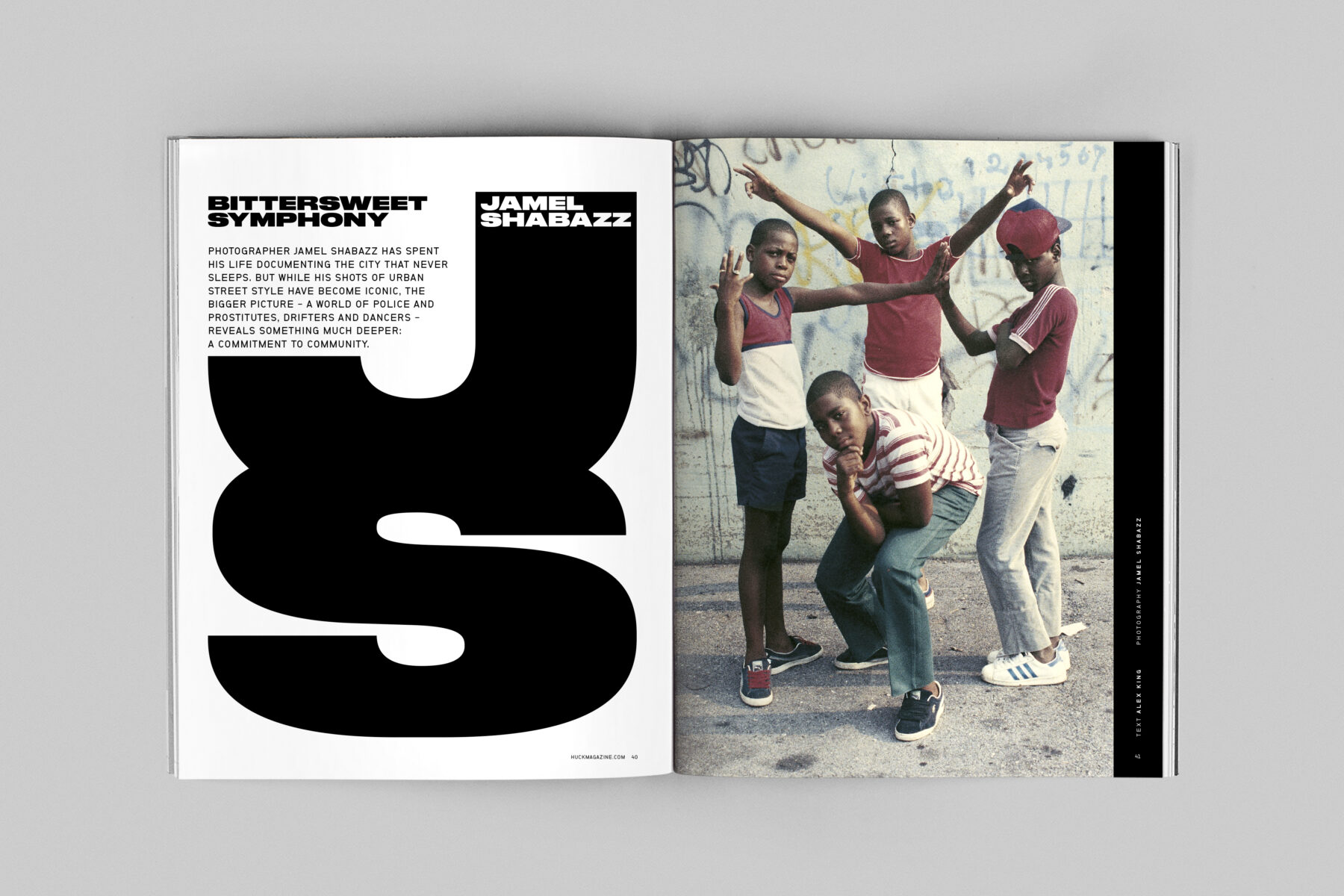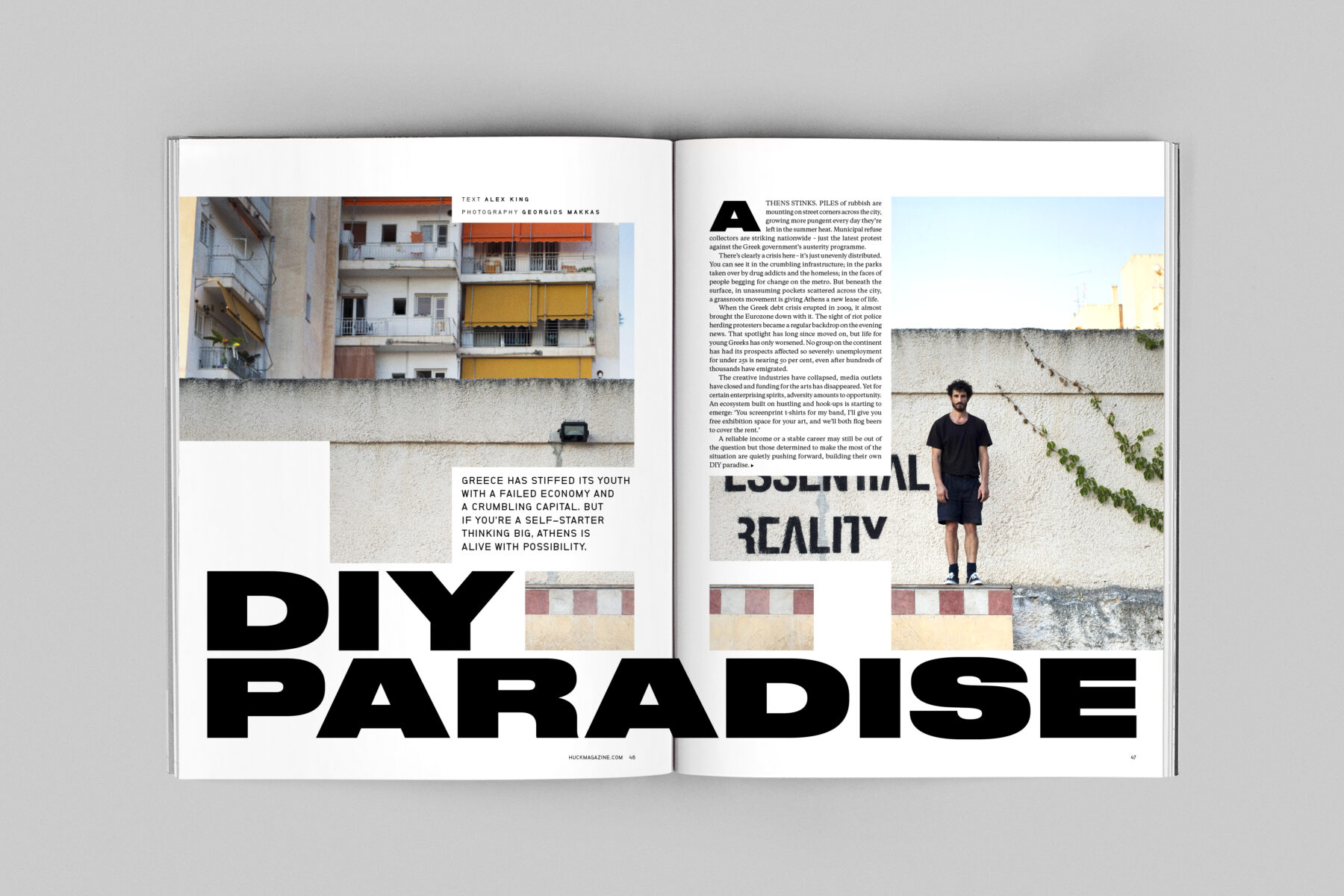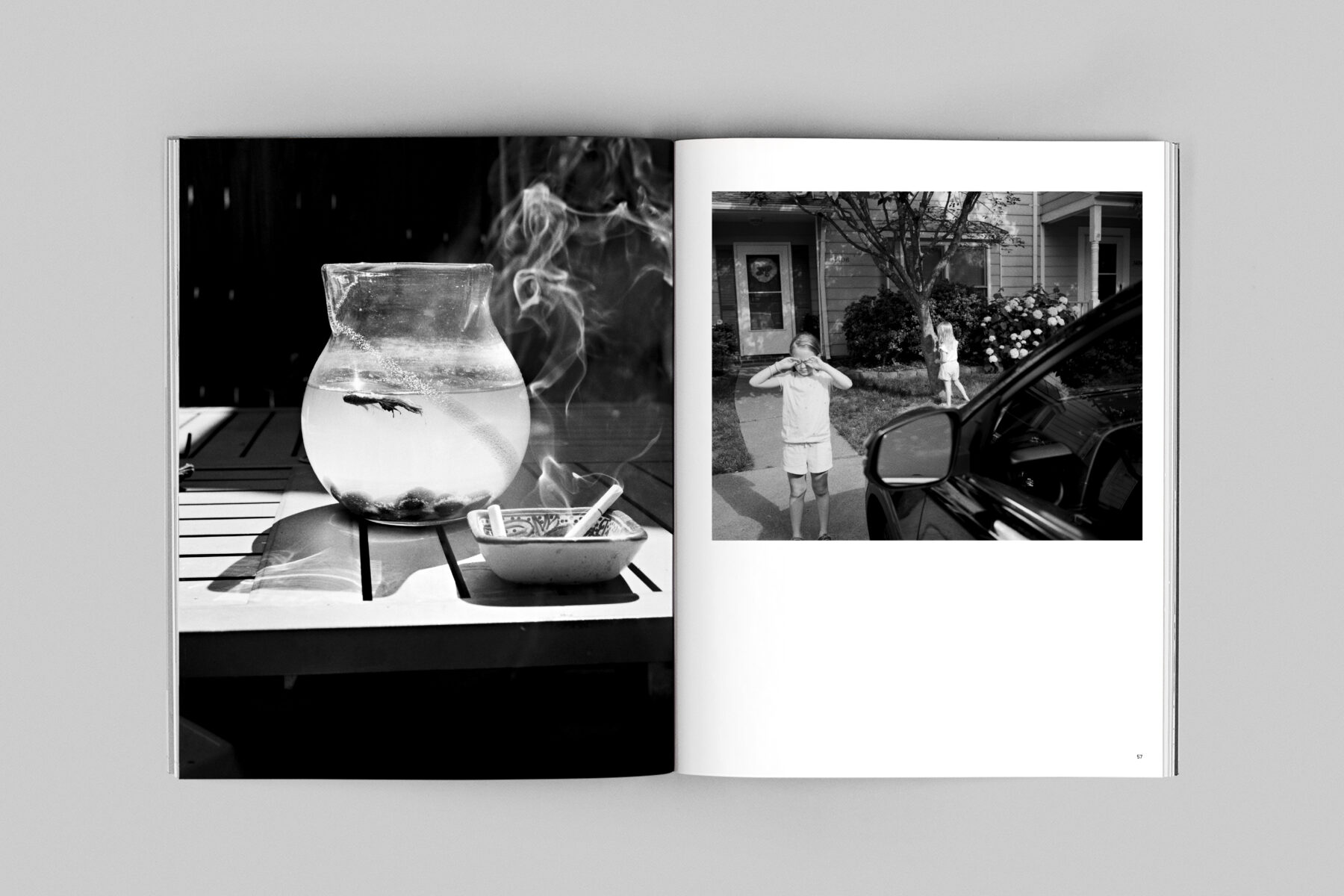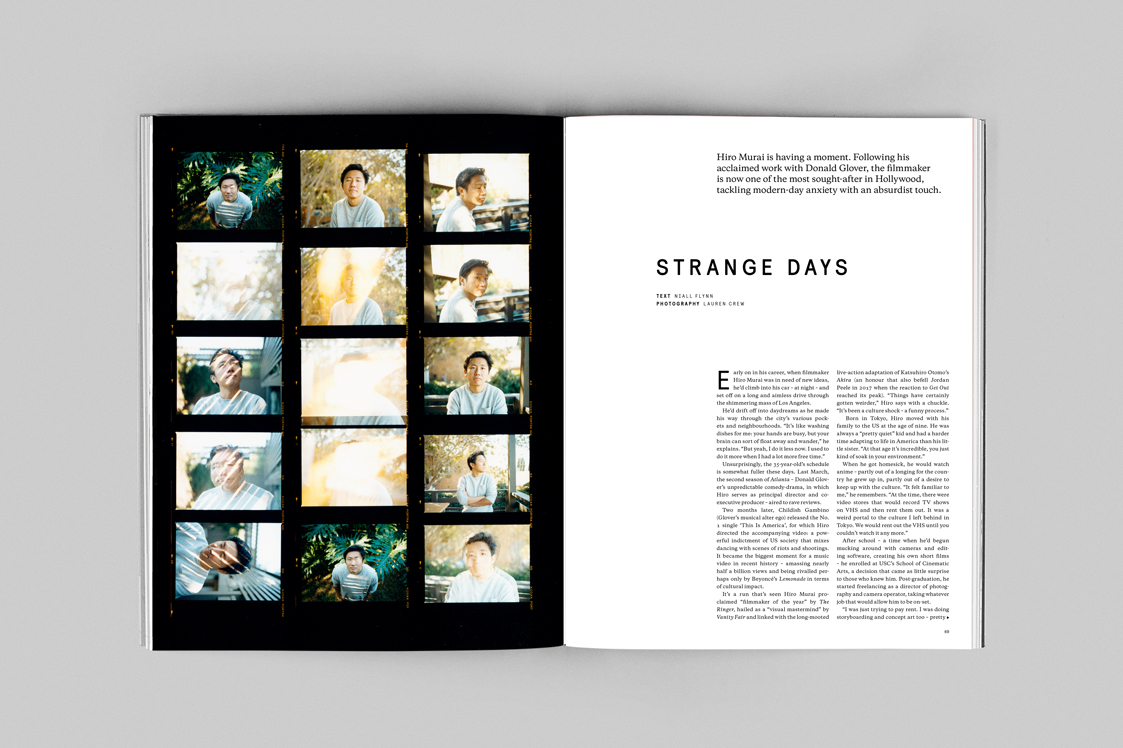Named after the central protagonist of Mark Twain’s Adventures of Huckleberry Finn, Huck Magazine celebrates young change-makers and counter-culture heroes.
“Essentially, we’re inspired by people who make things happen for themselves, who reject the status quo through transgressive acts that can come at any level of society, whether it’s making a film on your phone or organizing a protest,” says Huck’s editor Cian Traynor.
Originally from Ireland, Traynor trained as a journalist in London before working as a features writer for The Irish Times and moving to Huck in 2016, where he is now their acting editor. To Traynor, the magazine’s common denominator is championing independent culture in a way that illuminates life on the fringes. In that sense, Huck is more about representing an attitude than a demographic.
Over the past 13 years, Huck has built an extensive network of freelance writers, filmmakers, and photographers around the world and maintains a positive editorial mandate that emphasizes counter-narratives and unfiltered voices. “There’s so much going on in the world right now, with so many opportunities to learn and have your perspective challenged, that you have to be mindful of who is telling these stories and how.”

-
What vision sparked Huck’s foundation?
Before there was Huck, there was Adrenaline: an unconventional skate, surf, and snow lifestyle magazine that explored the countercultural connections between those sports with Kerouacian vigor. In the wake of the dot-com crash, Adrenaline folded and its various players teamed up to pursue new creative outlets, which included Huck. Vince Medeiros, managing editor of Adrenaline, became the founding editor of Huck: a title still rooted in skate and surf, but with an ever-expanding vision plugged into DIY culture all over the world.
-
How has the magazine evolved?
Over the years, the magazine has put greater emphasis on in-depth reportage that shines a light on emerging subcultures in unlikely places; it could be an all-female roller-derby in Beirut, the heavy metal scene in Botswana or a graffiti crew in El Salvador. In between, you’ll find profiles of young changemakers and in-depth interviews with countercultural heroes. But the big idea is that Huck offers a curated collection of stories you’re unlikely to find anywhere else.
-
Can you name a story that really illustrates the vision behind the magazine?
In terms of producing a counternarrative built from unfiltered voices and good old fashioned reporting, it has to be Bikestormz: Inside the fearless bike movement tearing up London. These young cyclists were being vilified as an anti-social menace for the way they took to the streets in ‘feral’ packs wearing hoodies. We spent some quality time with them and were the first to share their side of the story: that in a city rife with inequality and violence, with few opportunities for young people, this was a much-needed outlet steering many away from more dangerous paths.
-
Each issue of the magazine is based around a single theme. How timely do you try to be when it comes to choosing topics?
I feel like there’s at least one issue per year where we hit upon a timely theme that gets crystallized in the form of a unique set of stories—with each one reflecting the overarching concept in an interesting way. In 2016, it was the Offline Issue. After a year of depressing news, everyone felt sick of the internet. There was a yearning to get back to basics and feel rooted in reality. In 2017, the No Regrets Issue celebrated carpe diem as a way of life. In 2018, the Fantasy Issue focused on dreamers making the impossible possible. This year, it’s definitely the Burnout Issue.
-
Why burnout?
We normally settle on themes well in advance and when the World Health Organisation officially recognized burnout as a condition in May 2019, we knew we were onto something. It feels like our strongest, most cohesive issue so far. The Burnout Issue takes this idea of being fed-up or exhausted and, through the lens of Huck, aims to invigorate the reader through stories of possibility—from artists pushing themselves to the brink creatively, overcoming great personal crises, to everyday figures who feel compelled to take a stand for something they believe in.
“When you’re trying to negotiate access for a star interview, it doesn’t matter if your website has millions of visitors—the first thing they want to know is whether it’s going to be in print.”
-
How does the print magazine inform the website, and vice versa?
Since I started at Huck in February 2016, I’ve taken responsibility for the packaging and performance of whatever print article goes online each week—part of a wider digital first strategy to adapt to the times. I always say that it’s not enough to do good work; you have to get it out there. Whenever a new issue goes to print, I feel like only half of the work has been done. You can’t just press publish and hope people will find it, like a message in a bottle. Those days are gone. We’re constantly analysing our traffic to see who’s reading what and where it’s being shared, feeding that back into strategies to expand our reach. You have to keep asking yourself, Who else would be into this? And how can I get it to them?
-
Where do you see Huck moving in the future?
The individual contributors may change, and readers may come and go, but the important thing is to maintain a sense of continuity and a commitment to quality. Media is an ever-shifting landscape that requires tireless experimentation; to stand still is to risk becoming irrelevant. You have to think in terms of transmedia storytelling. Is there an article you’ve commissioned that would work as a short film? Can a beautiful illustration be turned into an animated GIF for Instagram? Could a great interview be expanded into a podcast series? As for print itself, the number of titles may be diminishing but the appeal of having an engaging set of stories in your hands still feels compelling. When you pull a copy out to show someone, their eyes light up. When you’re trying to negotiate access for a star interview, it doesn’t matter if your website has millions of visitors—the first thing they want to know is whether it’s going to be in print. That hierarchy of prestige has stuck around for some reason. It’s just not the same when you’re sending someone a link.
Huck Magazine is a quarterly publication that celebrates independent culture. Founded in 2006, its most recent and 70th issue, Burnout is inspired by the spirit of survival: a unique set of stories about the drive to overcome forces bigger than ourselves.
If you’re looking for more FvF interviews with purveyors of printed matter check out our recent pieces on Nataal and Fluffer Everyday.
Text: Ann-Christin Schubert
